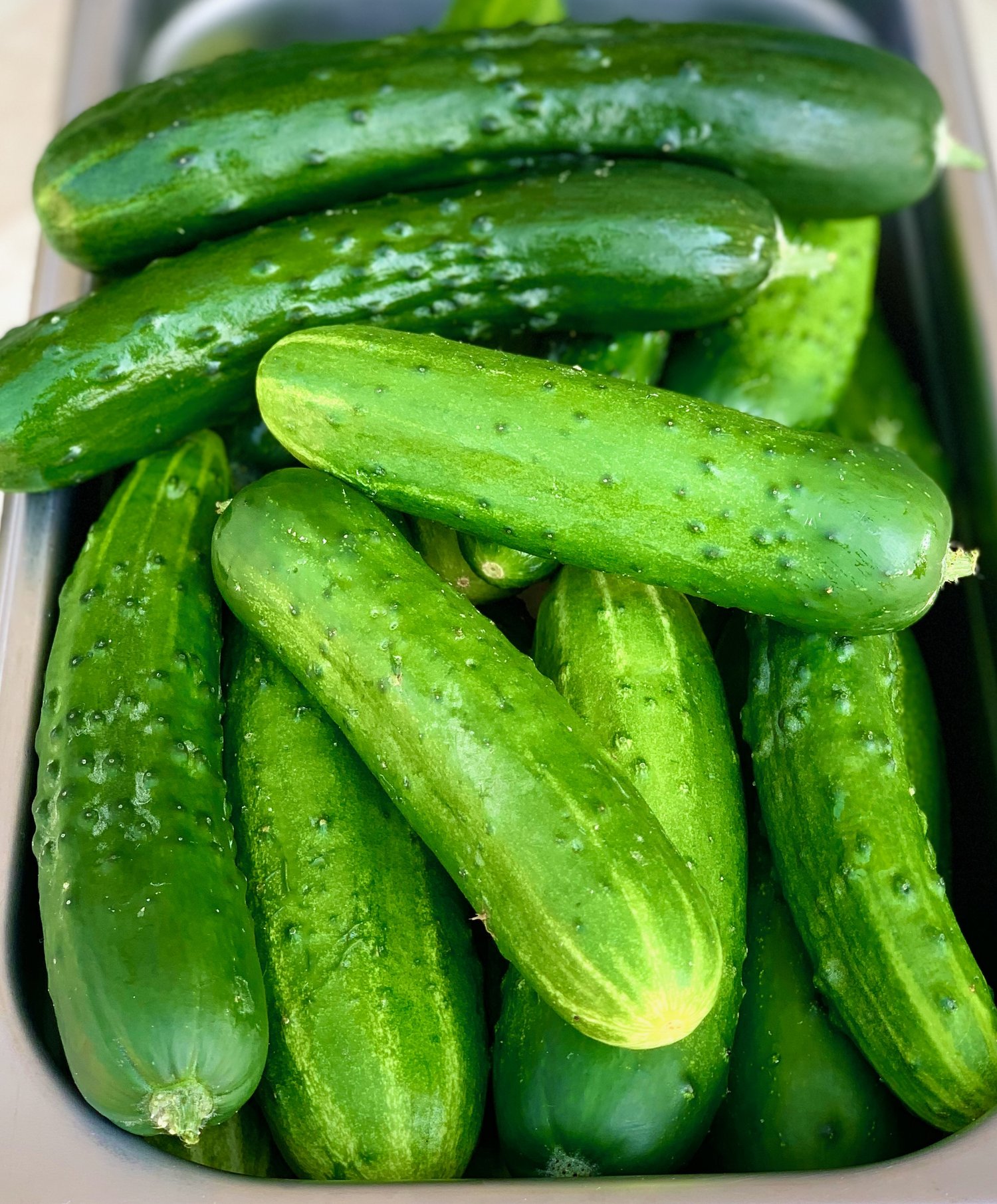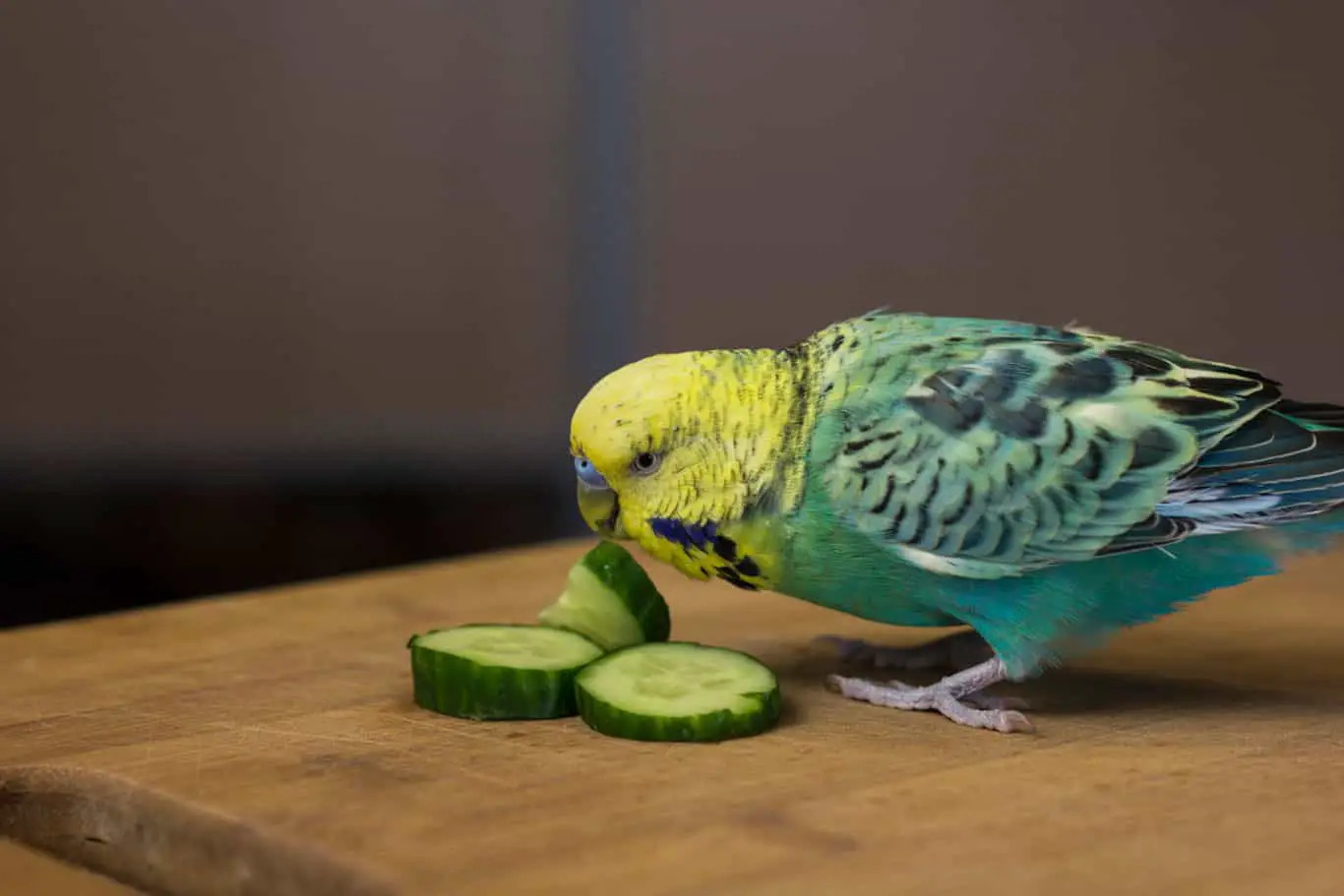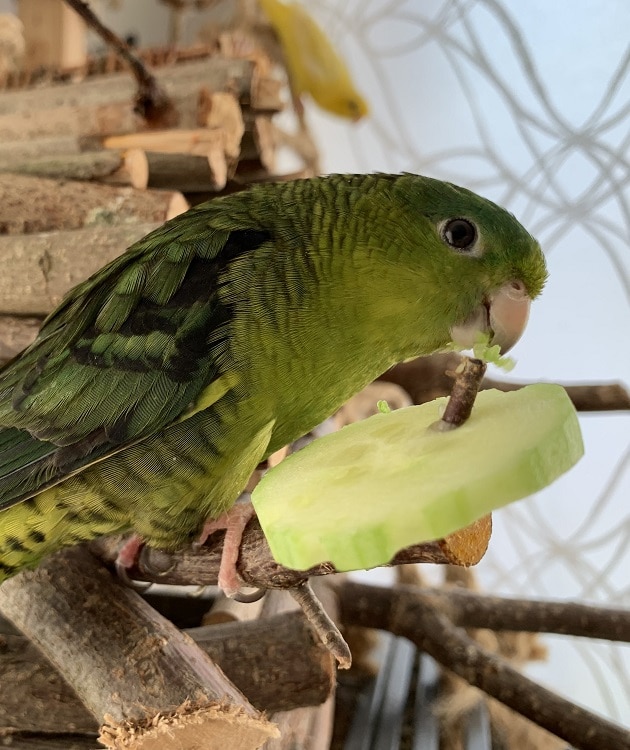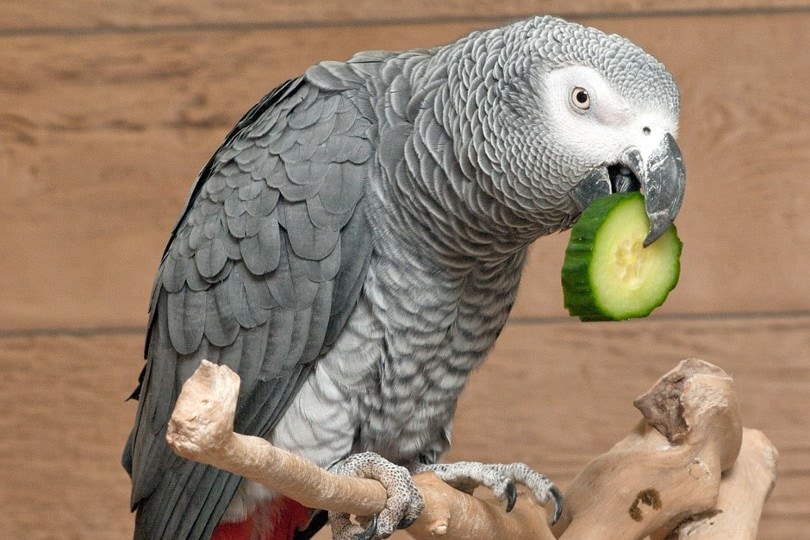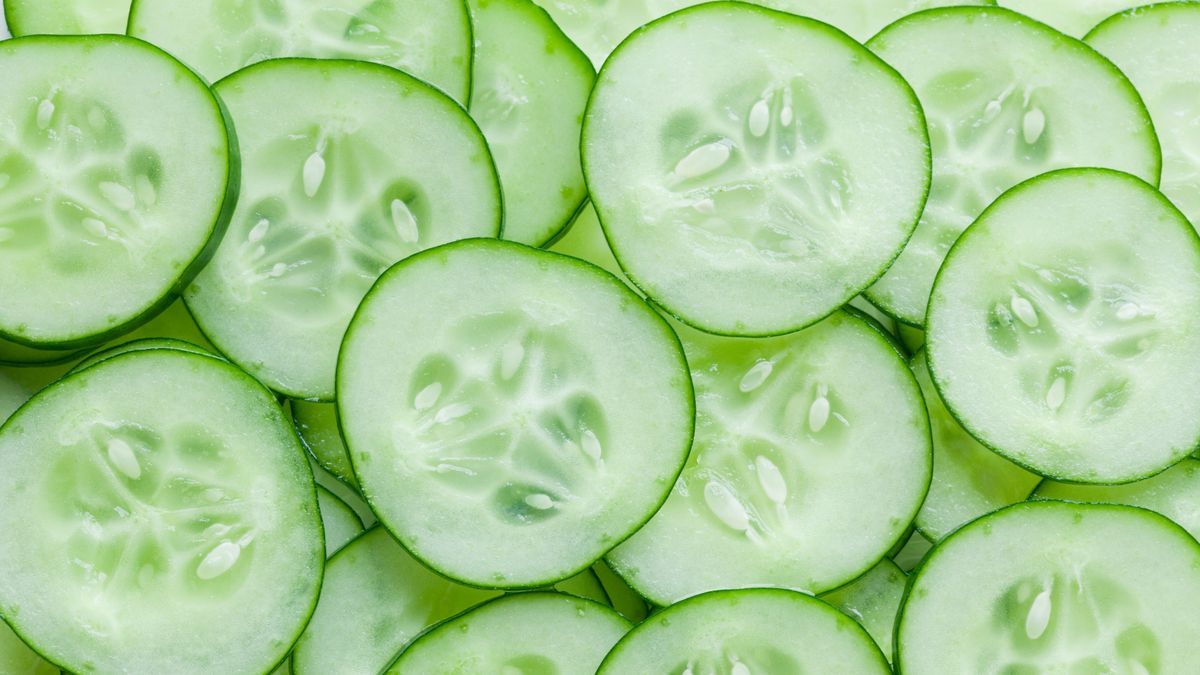Can Birds Eat Cucumber - What You Need To Know About Bird Diets
Since cucumber is a vitamin-rich food, seeing birds consume it would undoubtedly be beneficial to them. Can birds eat cucumbers when offered at a bird feeder. The minerals and water in cucumbers are good for the health of birds. There is no particular bird species that is drawn to cucumbers. By preparing the cucumber such that the birds can easily access the flesh, you will draw in more birds.
Author:Liam JonesReviewer:Maya ReyesOct 05, 202355 Shares54.8K Views
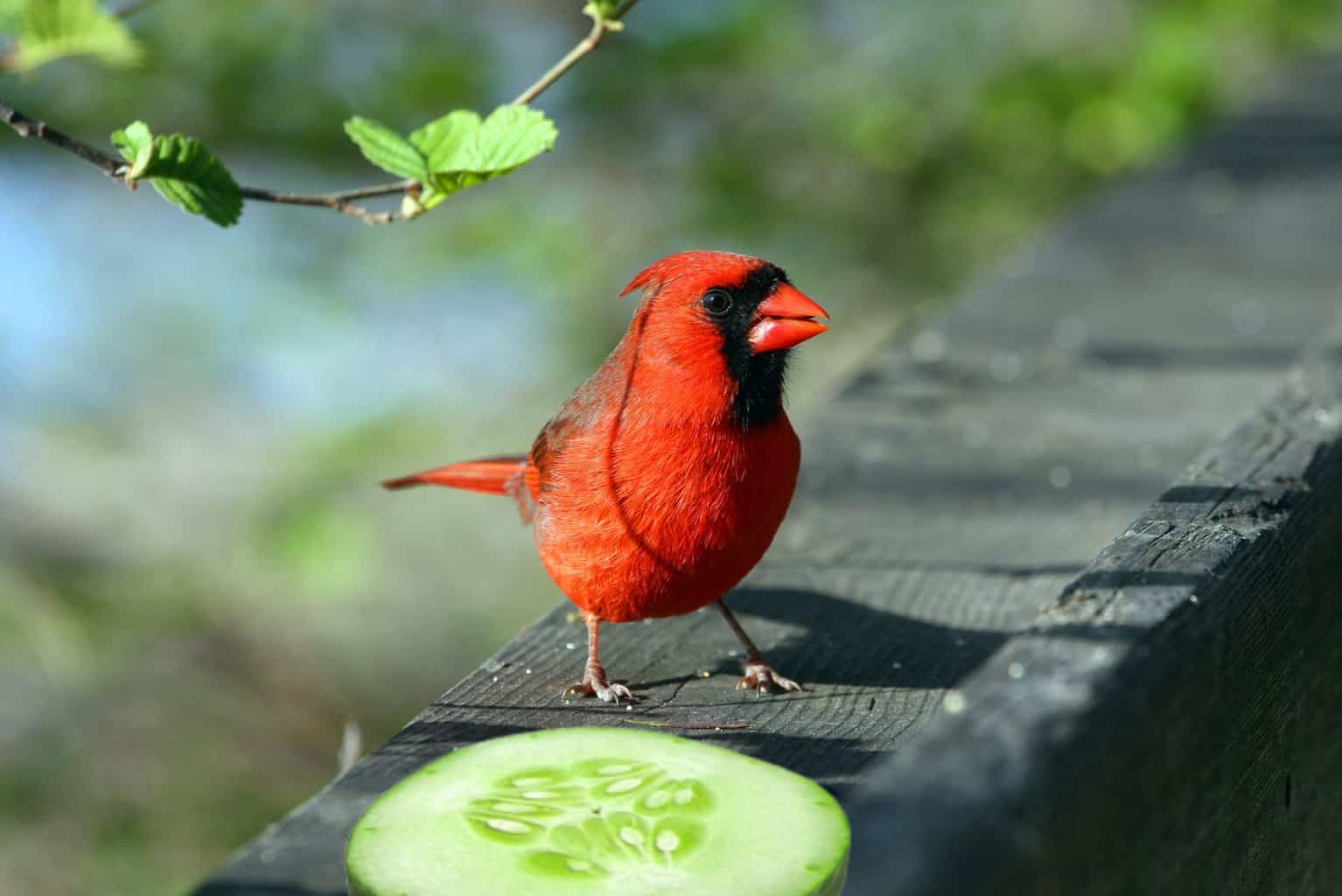
Vegetables are among the best foods for birds when it comes to diet. However, not all veggies are nutritious. Onions are one example of a vegetable that may lead to esophageal, crop, ulcers, or even death. What about cucumbers, though? Is it secure? Are birds able to eat cucumbers, and is it healthy? Here is the succinct explanation.
Since cucumber is a vitamin-rich food, seeing birds consume it would undoubtedly be beneficial to them. Can birds eat cucumberswhen offered at a bird feeder? The minerals and water in cucumbers are good for the health of birds. There is no particular bird species that is drawn to cucumbers. By preparing the cucumber such that the birds can easily access the flesh, you will draw in more birds.
Huge Benefits To Eating Cucumber
Cucumbers would undoubtedly provide enormous health advantages for wild birds, therefore any attempt to really feed them would be worthwhile. Since birds need these nutrients in the spring and summer, it would be a good idea to just feed birds cucumber during those seasons since it is high in vitamins.
Benefits of that, of course, include the fact that wild birds would be feeding their young at this time of year on feeders or back at the nest, making it the ideal time to give them cucumber since there are few choking concerns. When garden birds are looking for water, drought or a dry summer might be problematic, but for a cucumber lying on the bird table with luscious flesh, it could be another reason why birds would eat cucumber.
Birds Attracted To Cucumber
The only birds that will try to eat a fresh cucumber are the ones who regularly visit our gardens to feed. The majority of us have grown used to knowing Robins or Starlings as fruit-eating garden birds, and these are likely the species we would like to draw in the most. However, having fruit of any type in our yard would inevitably draw more obtrusive visitors.
When cucumber is left out in the garden, fruit-eating pest birds like crows, seagulls, and jackdaws may become more numerous. It is advised to just provide a small amount of cucumber at a time and to take it away if it draws any of the aforementioned animals. On the bright side, other birds like the Moorhen, Pied Flycatcher, Stonechat, Whitethroat, and Willow Warbler would be willing to eat a cucumber pin or full one.
Can Birds Eat Cucumber?
The short answer is yes, birdscan eat cucumbers. Cucumbers are generally safe for most bird species, and many birds may occasionally nibble on them if they encounter them in your garden or feeding area.
Except for predatory birds like hawks (which sometimes become prey), all bird species that eat vegetables can consume cucumber. Not only can urban birds recognize and enjoy cucumber, but wild birds do as well, indicating that birds have been eating cucumber in the past and are now eating a diet free of salt and other additives.
To make cucumber more delicious to eat, many people add salt, garlic, or onion. They use the same methods, however, when giving cucumbers to animals like birds or other creatures who do more damage than benefit. Eating cucumbers or any other vegetables is also not a part of their normal diet.
Whether you wish to feed birds or attract them to your garden, all food presented to birds should be given to them in the right quantity and without any combination as in the wild, birds only consume fruits and vegetables.
Cucumbers are a very nutritious meal for birds that make birds happier, healthier, and live longer in addition to moisturizing and eliminating dryness from our eyes. But is there a danger involved, and how healthy and safe is it for birds? These are the responses.
Can Parakeets Eat Cucumber?
Yes, parakeets, also known as budgerigars or budgies, can eat cucumber in moderation. Cucumber is safe for parakeets and can be a healthy addition to their diet as long as it's offered in the right way. Here are some tips for offering cucumber to your parakeet:
- Freshness -Ensure that the cucumber is fresh and free from pesticides or any harmful chemicals. Wash it thoroughly to remove any potential residues.
- Slicing -It's a good idea to slice the cucumber into small, manageable pieces for your parakeet. This makes it easier for them to eat and reduces the risk of choking.
- Seed Removal -While the seeds of cucumber are not toxic, some parakeets may have difficulty digesting them. Removing the seeds before offering cucumber to your bird is a precautionary measure.
- Variety -Cucumbers should be part of a varied diet for your parakeet. Don't rely solely on cucumbers. Parakeets need a balanced diet that includes pellets, seeds, fresh fruits, vegetables, and occasional treats.
- Monitor Consumption -Introduce cucumber gradually to your parakeet's diet and observe how they respond to it. Some parakeets may take to it readily, while others may not be as interested.
- Hydration -Cucumbers have a high water content and can help keep your parakeet hydrated, especially during hot weather. However, don't rely solely on cucumber for hydration; fresh water should always be available.
Can Parrots Eat Cucumber?
Cucumbers may be very beneficial to parrots. They are savory and healthy. Because of their high water content, they shouldn't be eaten in large quantities since they might result in diarrhea. A balanced diet may include cucumber, but it shouldn't make up the bulk of it. We strongly advise including cucumber in your parrot's regular diet. Cucumber may be safely fed in tiny quantities a few times each week, ideally with a high-fiber fruit or vegetable.
We don't suggest feeding cucumbers with another watery vegetable due to how watery they are. Your parrot should only be given plain cucumber. Don't season with salt or anything else. Use fresh cucumbers rather than pickled or fried ones. The greatest choice is fresh ones since they have the most nutrients and don't have any frills. A lot of parrots adore and will happily eat cucumbers. However, some don't. If your parrot doesn't want to eat cucumbers, there is little incentive to push them. Although this vegetable is healthy, your parrot won't suffer if they don't consume cucumber.
How To Feed Cucumbers To Birds?
Cucumbers may be fed to birds in a variety of ways, both with and without feeders.
- Peel The Skin -While washing may clean the cucumber, but it still would be associated with risks, especially with cucumbers of the store. That’s why it’s better to peel off the skin completely which would cut off the problems that come with it.
- Cut Into Pieces - When it comes to eating, birds eat cucumber without its cut. They use their beak to take a cut of it but it takes more struggle and difficulty to eat. You can either cut into slices or into small pieces however, cutting into pieces is easier for birds to eat. You can cut it into pieces either with a bleeder or a cutter. No need to cut it into very small pieces.
- Feed cucumber to birds - You can feed cucumber to birds either by putting cucumber pieces into the bird feeder or cucumbers on a plate and putting them in the yard.
Type Of Cucumber For Birds
You can offer up any type of cucumber to birds including:
- Armenian cucumbers
- English cucumbers
- Garden cucumbers
- Persian cucumbers
- Lemon cucumbers
- Kirby cucumbers
The simplest to acquire in stores, garden cucumbers are what most birdwatchers choose. With non-bitter cucumber kinds, you should have greater luck. The English, Persian, or lemon variants are the finest. They are often referred to as "burpless" cucumbers. That indicates that they are devoid of a substance called cucurbitacin, which causes people to burp. For birds, cucumbers with decreased cucurbitacin content will taste sweeter.
Make The Cucumber Accessible
Even if birds are interested in eating it, feeding cucumber on the ground or high up on a bird table might affect what kinds of birds can eat it. Remember that certain wild birds are ground feeders and may not be able to use a bird table at all, whether it has a roof or is exposed to the weather. Similar to how offering a cucumber on the ground might discourage people who eat higher.
By scattering cucumber pieces around the garden, you may then ensure that as many species as possible get access to the cucumber. There is no harm in concentrating your cucumber feeding in that section of the garden if you later see success there. Never feed cucumbers in unfavorable environments or in areas where it limits all birds. But if the cucumber attracts huge, bothersome birds to the garden, you may want to remove it entirely.
Frequently Asked Questions
How Should I Offer Cucumbers To Birds?
It's best to slice cucumbers into small, manageable pieces for birds. Remove the seeds as some birds may have difficulty digesting them. Offer fresh and pesticide-free cucumbers.
How Can I Create A Bird-friendly Habitat In My Garden?
To attract a variety of bird species to your garden, provide a mix of foods, bird feeders, fresh water sources, and natural shelters like trees and shrubs.
Do Birds Eat Cucumber Skin?
Birds consume cucumbers with and without the skin, however, it is strongly advised to wash or better yet, peel the cucumbers if you have purchased them from a shop. However, birds may consume cucumber seeds without any issues since they contain proteins.
Can Birds Eat Cucumber Seeds?
The majority of natural seed-eating birds can really consume cucumber seeds. The seeds contain amygdalin, which certain birds, including budgies, may find harmful. It is advisable to remove the seeds before giving cucumbers to your pet budgie since they may face less competition than wild birds and may consume more seeds than necessary.
Final Thoughts
The truth is that little common garden birds may be given raw, but first-washed, cucumbers. You could have luck feeding them to only bird species that consume fruit in the wild since they are juicy, soft, and highly delectable. The more frequent Robin or Starling would be among them, but in certain parts of the UK, you could also be able to bring a Moorhen, a Pied Flycatcher, a Stonechat, a Whitethroat, or a Willow Warbler... under unusual situations.
However, if a cucumber is left out in the garden, it may draw more opportunistic visitors like crows, gulls, or jackdaws. If wild birds do consume cucumbers, it will benefit them since it is a fruit high in vitamins that will help them stay positive while battling challenges like summer dryness. If you don't succeed the first time, there's no harm in trying again. Open the delicious cucumber to reveal what it is to the birds. Then, provide the cucumber pieces on the bird table, on the ground, or in a more private part of the garden so that all garden birds may enjoy them.

Liam Jones
Author
Liam Jones has made it his mission to prove that adventure doesn’t need a hefty budget. Having traveled to over 40 countries, he specializes in finding affordable ways to experience the world, from the best street food in Bangkok to hidden gems in Lisbon.
Liam’s travel tips have reached thousands of readers, empowering them to see the world on a shoestring budget without sacrificing quality. With a deep passion for local cultures, he continues to share his travel hacks, ensuring adventure remains accessible to all.

Maya Reyes
Reviewer
Maya Reyes’s wanderlust was sparked in the temples of Luang Prabang, where the scent of lemongrass and the chants of monks revealed the transformative power of travel.
Since then, her journey has been defined by cultural immersion and authentic connections. From learning batik in Indonesia to sharing meals with nomadic families in Mongolia, Maya seeks experiences that highlight the human stories behind each destination.
Travel for her is a way to weave her narrative into the world’s cultural tapestry, creating bridges across diverse ways of life. Maya has traveled to 15 countries and shares her insights through writing and storytelling.
Latest Articles
Popular Articles
